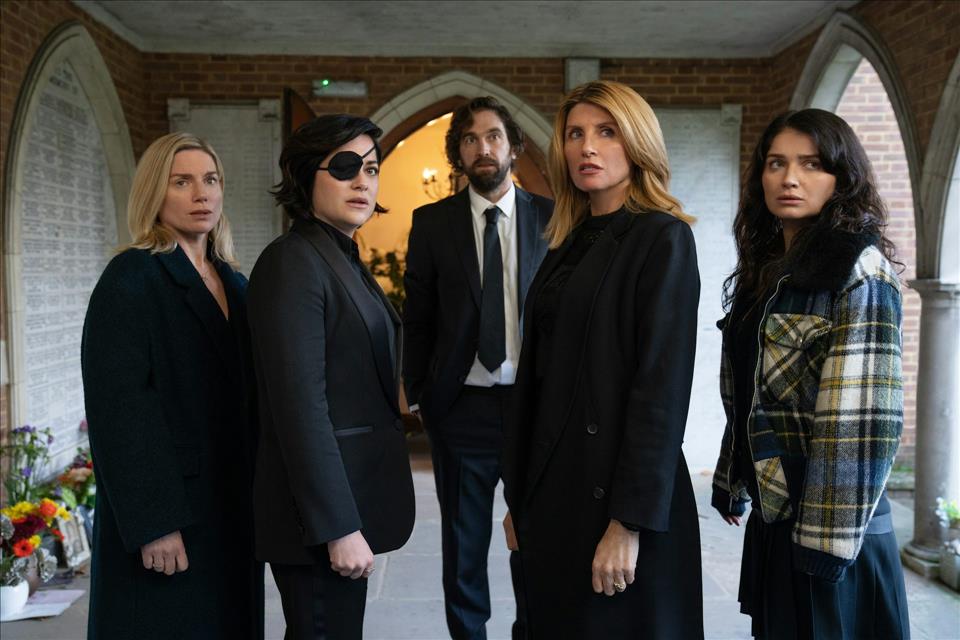
Bad Sisters Season Two Is A Darker, More Serious Look At Sisterhood
Set in and around Dublin, the“bad sisters” of the title are the Garveys: Eva (Sharon Horgan), Ursula (Eva Birthistle), Bibi (Sarah Greene), Becka (Eve Hewon) and Grace (Anne-Marie Duff). The first series followed the tight-knit sisters, kitted out in glorious knitwear, and ended with the death of Grace's coercive husband John Paul (Claes Bang).
The sisters are still very close, cloyingly so at times, always in each other's houses, lives and pockets. And we find that there is a new man, Ian (Owen McDonnell), in Grace's life now.
Even though John Paul isn't in the second series, we feel his presence throughout. The aftereffects of his death seep into everyone's lives and when a suitcase containing a dead body is discovered in his childhood home, the sisters fall under suspicion once again.
Men commit more violent crimes than women, especially murders. More than 90% of killers are men . Women, meanwhile, are both expected and perceived to be passive and forgiving . Anger in women is particularly demonised and seen as a flaw. When women do kill, they are either seen as mad, bad or a victim . Apple TV+'s dark comedy flips many of these stereotypes on their head.
Looking for something good? Cut through the noise with a carefully curated selection of the latest releases, live events and exhibitions, straight to your inbox every fortnight, on Fridays. Sign up here .
The second season of Bad Sisters is darker, and somewhat more serious than the first. Each of the sisters is facing their own private battle, from menopause to divorce, sexuality and unwanted pregnancy. Through digging deeper into each of their lives, the show covers a range of taboo subjects.
The trailer for the second season of Bad Sisters.
The show continues to expose the ways society is stacked against women, whether it be the garda (the national police and security service of Ireland), the healthcare system, or just the culture around them. The young police officer Una Hoolihan (Thaddea Graham), for example, is shown dealing with casual misogyny in the police force.
First and foremost, though, this is a show about sisterhood. It's not borne of the kind of tokenistic,“lean-in” feminism that tells women to improve themselves, try harder and things will eventually work out. Instead, it's a story about flawed women, with desires and urges, being messy and complicated. And that's much more refreshing to see.
The series is also a serious commentary cloaked in humour on what happens when women feel trapped and helpless, when their agency over their own bodies, desires and lives is taken away from them. They are compelled to take back control. Yes, there are male characters too, but they're very much in the background, watching the women run the show and shape the story. The men bully them, admire and desire them – but never quite manage to control them.
Fiona Shaw and Eva Birthistle in Bad Sisters. Apple TV+
It is satisfying to see the angry women of Bad Sisters refusing to contort themselves into archaic notions of femininity for the sake of the others around them. When a show like this comes around and allows women to be portrayed as their whole authentic selves, it feels like a revolution. Even though it shouldn't be.

Legal Disclaimer:
MENAFN provides the
information “as is” without warranty of any kind. We do not accept
any responsibility or liability for the accuracy, content, images,
videos, licenses, completeness, legality, or reliability of the information
contained in this article. If you have any complaints or copyright
issues related to this article, kindly contact the provider above.


















Comments
No comment